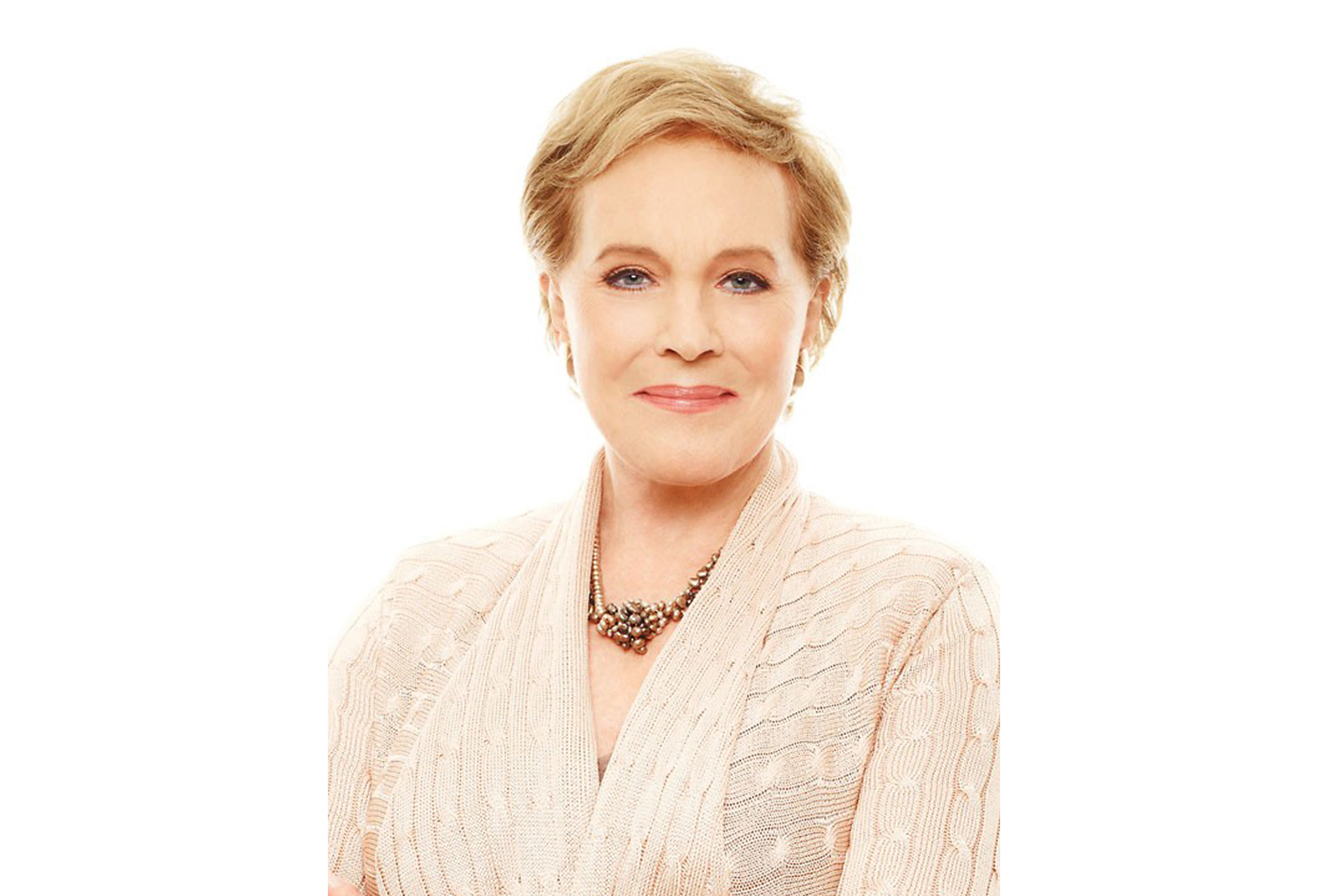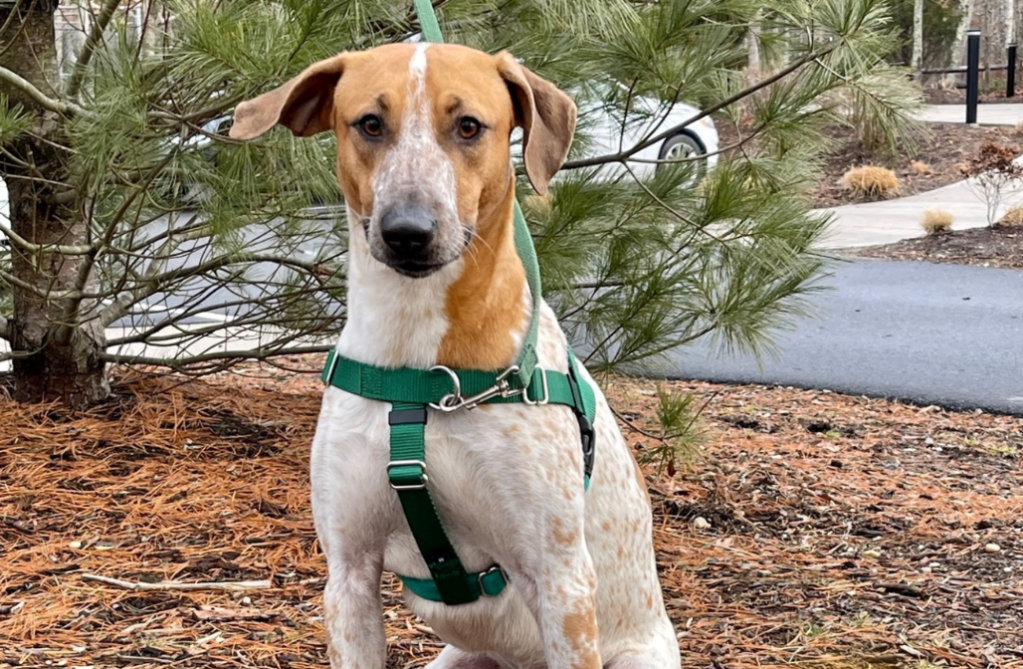Reflections With Julie Andrews

After ruling Broadway with “My Fair Lady” and “Camelot,” dazzling film audiences with “Mary Poppins” and “The Sound of Music,” and reaching over 100 million television viewers in Rodgers and Hammerstein’s “Cinderella,” Julie Andrews in the late ’60s and early ’70s was, quite literally, the most famous woman in the world. (During the same time period, OJ Simpson was the most famous man — for his sporting proficiency, not the later, darker reasons.)
The word “iconic” is overused. But some people surpass fame and simply become part of our makeup, of who we are. Andrews has never stopped dazzling; whether through her other film and television projects, her live concerts, her best-selling children’s books (co-authored with her daughter and Sag Harbor resident Emma Walton Hamilton), her involvement in humanitarian concerns, or her recent turn as theater director. And now the Hamptons International Film Festival, celebrating its silver anniversary, will award Andrews a Lifetime Achievement Award during its October extravaganza, with a showing of “Victor Victoria” followed by a Q&A with Alec Baldwin, who recently appeared on “Julie’s Greenroom,” a Netflix series where Andrews encourages children to explore the arts.
But it’s time for reflection on a gorgeous Thursday afternoon, sipping cups of tea at Andrews’s dining table on the East End. Andrews is working on her second autobiography, a sequel to “Home: A Memoir of My Early Years.” This book is about her prime time in Hollywood.
“I don’t sleep very well these days,” she admitted. “I keep pulling in wisps of memories. It’s a long time ago that a lot of this happened, and there’s so much that I want to recall in the right way – separating the true experiences from what have become essentially just stories and anecdotes.”
At the end of her last book, Andrews hadn’t quite reached Hollywood. “I hadn’t even made a film yet,” she said. “It was such a learning experience. And I want to do justice to the great directors and cinematographers, and what it takes to get it done.” She and Hamilton have been poring over her diaries and datebooks of days past, and have been watching her movies, in the order in which she filmed them. Watching them makes her “alternately amazed, and then quite sad, and then very delighted and sometimes disgusted,” she said with a laugh.
“All of the movies were a discipline of learning for me,” she said. “Obviously ‘Poppins’ was learning about what close-ups mean and what medium shots mean, and discovering the world of cinema and one’s place in it. And there were a lot of special effects, which really taught me the patience of waiting,” Andrews continued. “The difference between doing theater – which is starting at the beginning and finishing at the end — and film – which is holding the entire script in your head and sometimes filming completely out of sequence – is enormous. You just hope that the director and the editor can patch it all together into a brilliant jigsaw puzzle.”
After Poppins, Julie jumped into a non-singing role with “The Americanization of Emily,” written by Paddy Chayefsky. “It’s probably Paddy I mention the most of all” in the upcoming book. “It was his script that was so riveting. I didn’t have to know very much about acting because he wrote the words so well they just fell out of one’s mouth correctly,” she said.
“‘The Sound of Music’ was a very tough working experience, and then ‘Hawaii’ was next, and that was . . .” Andrews trailed off for a moment. “Well, it wasn’t just learning your craft, it was battling the elements, and fatigue, and early hours.”
But honing her film presence was an essential part. “Bob Wise,” the director of “Sound of Music,” “taught me about close-ups, where to look. You see, if you try to look into the other person’s eyes during a two-person scene, your eyes will be constantly dashing back and forth, and it doesn’t look right on film. You either have to focus in the middle, or on the camera eye. That was something that Bob gave me.”
George Roy Hill gave her the gift of stillness. “He taught me how to just sit in silence. It’s a great gift for an actor to not be doing anything, but to be doing it actively,” she said.
Andrews worked with James Garner early in her career, in “Americanization of Emily,” then again in “Victor Victoria” almost 30 years later. “He was delicious to work with every time,” she said. Referencing her husband, the late Blake Edwards, who directed “Victor Victoria,” she said, “Blake said to me, ‘Just watch him, Julie. Watch Jimmy. He’s not only a great actor; he’s a great reactor.’ And in that role, it’s pretty much what he has to do…he’s brilliant.”
Are there any roles where she wishes she could have a do-over? “The Hitchcock movie,” she said, referencing “Torn Curtain,” one of Alfred Hitchcock’s lesser-known ventures into spyhood and political intrigue. “It was a lovely experience. Paul Newman was delightful – he called me ‘the last of the really great broads,’ which was such an honor coming from him,” she laughed. “But to Hitchcock, that particular project didn’t matter that much. So when we would say, ‘Can we do it this way?’ he would say, ‘Sure, do whatever you want.’ He wasn’t invested in that film the way he was in his other work, so I wasn’t really invested either.” But he did teach her about camera lenses. “Don’t ever let them use this lens on you,” Hitchcock told the young actress. “It will make your nose grow dreadfully.”
Even the filming of “Victor Victoria” was another difficult period for Julie. Her two younger daughters, Amelia and Jo, were just settling in to a new school, and she was torn between her duties as an actress and a mother. “Motherhood always comes first,” she said, and added, “Working with Emma now is such a great joy. One of the best times I’ve ever had.”
And working with Edwards was always a positive experience. The couple made many films together, including “Darling Lili,” “10,” “SOB,” “That’s Life!” and others. “I always felt safe in Blake’s hands as a director. I so admired the way he directed – never gimmicky. He never shot through keyholes, he didn’t like that sort of showing off of the ego. He said that hopefully the most important thing was that you would never think there was a camera there,” she said.
As for the Hamptons Film Festival award, Dame Julie Andrews is “pleased and honored” by the accolades. She and Baldwin are good friends and she’s looking forward to their onstage interview. “He’s another delicious guy,” she said. “And I know he will ask all the right questions. He’s truly interested in film.”
And Andrews is convinced that it is her natural curiosity and interest in things that keeps her grounded and moving forward. “More than anything, it’s been – all of it – such a great learning experience. I wouldn’t have traveled to the places I’ve traveled to, met the people I’ve worked with – I’m glad I have a curious nature anyway, but to learn about Hawaii, or Austria, and to learn about the directors and their differences, it’s just all been fascinating.”
“So much of work is learning in the moment, and just hoping you’ll do a great job,” she said. “For me, to stop learning is to stop living. There’s still so much out there,” she said. “I don’t think I would ever be able to stop doing something. I would always have to keep busy, because that’s what I’ve been doing my whole life.”
“There’s a lot that I’ve lost,” she said, “but there’s a lot that I’m very pleased and proud of as well.”



